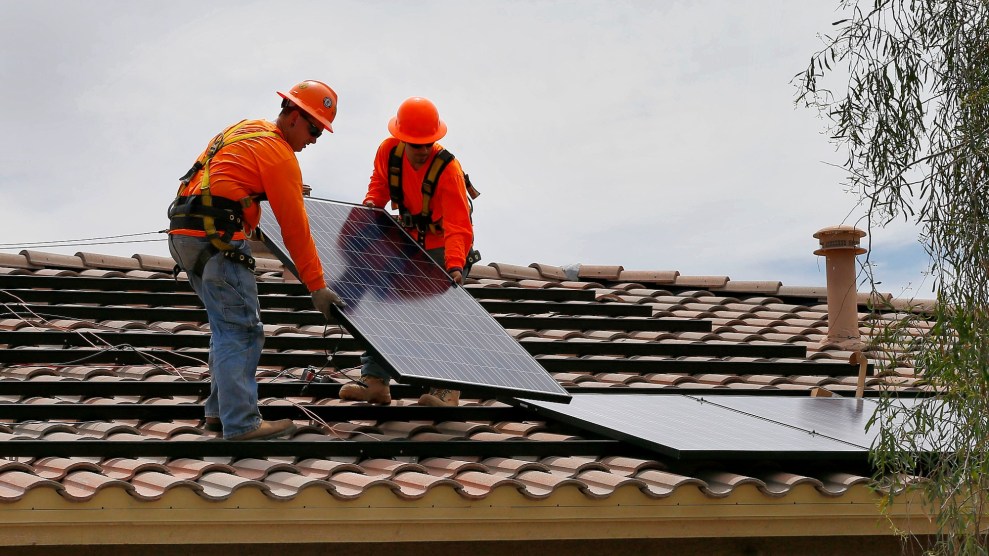During the 1930s, I’m told, at least one of Manhattan’s big department stores sold goats. Not goat cheese: goats. The merchandise was warehoused during the week—stockaded is more like it—on the roof, and on weekends the critters rode the elevator to the loading dock and headed out to Long Island to fatten up in more conventional surroundings, on a farm. A few years ago, when I was gripped by the passing fantasy of moving to rural Tennessee and raising goats, I made the acquaintance of the Goat Man of Midtown, the very farmer-cum-retailer himself. He explained to me that Manhattanites of the era had kept the goats in their apartment gardens for milk and meat, goats being easy to feed on table scraps and hay bales (presumably available in the hay bale department) and undoubtedly also geraniums. Goats are social-welfare barometers, he told me. When times are tough, they’re popular. But then the Great Depression lifted, and that was the end of the franchise.
If the story’s true, then the goat market was, while it lasted, the sine qua non of local food. And the “bad times = goats good” formula—the Bleating Economic Indicator, if you’ll forgive me—was my introduction to the truth that food is politics by other means. A more recent, and certainly more authoritative, exhibit of that truth is this month’s cover story, in which Michael Pollan describes how the move to eat food that’s locally grown and bought direct from the farmer can change for the better not only our diets but our landscapes, economies, societies, ecologies, international relations, and domestic priorities as well. In other words, opting out of the global industrial food chain and avoiding the supermarket aisles has the potential to be revolutionary.
There, I’ve said it. “Revolutionary” is a dangerous word to appliqué onto any magazine article about lifestyle choices, if only because it is so devalued in that context—as hoary and shopworn as a “New! Improved!” starburst on a cereal box. Among the more noxious frauds foisted on the public by the media is the ubiquitous false promise that one or another personal lifestyle change that really doesn’t amount to a hill of beans will be, in fact, …revolutionary! In this case, though, I stick by my description. This particular lifestyle change can help liberate us precisely because the oppressor it confronts is a lifestyle tyrant. Local food is important for reasons that go beyond even the benefits Pollan enumerates, and that have less to do with the word “food” than with the word “local.”
Modern life, with all its profusion of advantages, has left us with an unfilled dietary requirement, a sort of societal scurvy: a gnawing hunger for unmediated experience. So many of the things that would, not so very long ago, have required a meaningful face-to-face encounter, today are accomplished by antiseptic commercial transaction. We live so awash in the global and the electronic and the mass produced that the here and now, the unique experience immediately before us, sometimes no longer registers. In the course of being spared the harsher realities afflicting most of the world’s tenants, we are treating ourselves to a deracinated, denatured existence. Our culture is manufactured by studios and distributed over networks; our luxuries are produced by invisible hands half a world away. Less and less are we connected to the sources of our well-being in any material way, except through the agency of a commercial middleman.
The buying of food you can’t touch from a clerk swiping bar codes (and soon we’ll get rid of the clerk altogether) is a good example of this trend, but it’s by no means an isolated one. We can bank at an ATM, date over the Internet, politick through weblogs, and commune by cell phone, and who among us would want to give up such advantages? Anytime I get nostalgic for simpler epochs, I remember to fervently praise the fates that I wasn’t born before the invention of anesthesia. But that doesn’t mean I want to go through life anesthetized. As we do whenever we forget to keep our luxuries in perspective, whenever we’re tempted to consider ourselves liberated by our purchases or redeemed, as Martin Luther put it in his protest nailed to the Wittenberg church door, “immediately the money clinks in the bottom of the chest.”
For there is a cost to our modern indulgences not itemized on the monthly bill, an alienation surcharge. The cost can be political, in the Tip O’Neill sense that “all politics is local.” Why, in an era when news of the world can be summoned by a button on a remote, when the Internet allows anyone to mobilize with a mouse click, is political apathy approaching a level sufficient to endanger the Republic? The cost is also ethical, to the degree that the personal connection between individual and experience is a prerequisite for any real contemplation of life’s meaning or any real moral accounting. Those costs flow from the central cost, our ouster from the garden of tactile experience.
Of course, it’s a mistake to get too virtuous about these things. The magazine you hold in your hands might be a paragon of tactile media in the spooky Internet age, but it is itself the product of the greatest advance ever made in mass production and commercial dissemination, the Gutenberg printing press. Certainly that invention, which globalized information 550 years ago, alienated teller from told, but that’s hardly the end of the tale: It also enabled the Renaissance, Luther’s Reformation, and democracy.
Perhaps today’s onslaught of new tools and toys will likewise spark the reaction that will balance their promise against their potential to divorce us from ourselves. Luther’s protest was against a church that had inserted itself between humankind and redemption. The force that inserts itself thusly today is a commercial and technological one. If, in the face of that, the local food movement becomes one small insistence on unmediated experience, it will surely rank as revolt. It will bring the goats to the city, and especially in good times, that’s exactly what we need.












